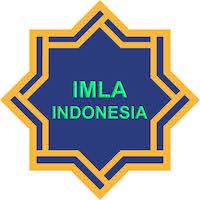Teaching Arabic At Rawda Al-Islamiyyah Secondary School/ تعليم اللغة العربية في مدرسة روضة الإسلامية الثانوية الأهلية
DOI:
https://doi.org/10.18592/jams.v9i1.5598Abstract
This study focused on learning Arabic in the classroom, the purpose of this study was to determine the learning activities that took place at MAs Raudhatul Islamiyah. Qualitative descriptive research approach. The procedure for collecting data was observing, interviewing, and documenting. The subject of this research is Arabic teachers. In planning the management is carried out by the teacher, learning planning is by the learning administration flow. The steps in making the first learning administration Competency Standards, Basic Competencies, annual programs, semester programs, and Implementation Plans are more operational and detailed. In preparing the plan the teacher is given the freedom to change, modify, and adapt the syllabus to the conditions of the school, region, and the characteristics of the students so that it is more effective and efficient because it meets criteria such as pre-test, learning process, and post-test. Teachers master learning materials, various strategies, methods, and approaches that vary according to the material being studied, as well as strengthening student motivation by increasing awareness of the importance of learning Arabic in everyday life, giving praise and rewards, giving questions, assignments, tests and notifying results.References
Ad Domin, Munzir Abdul Hamid. Asasiyyat al Bahts al Ilmi. Oman: Dar Al masirah Li Ansr, 2006.
Al Hadid, A. Musykilat Ta’allum al Lughah al Arabiyyah Li Ghairil Arab. Kairo, 1999.
Azizah, A. “Pengajaran dan Pembelajaran Bahasa Arab: Masalah dan Cabaran,” International Journal Of Religion Research In Education, Vol. 1, No. 2, 2017.
Hikmat, H. Manajemen Pendidikan. Bandung: CV. Pustaka Setia, 2011.
Jabir, Walid. Tadris al Lughah al Arabiyyah: Mafahim Nazariyyat Wa Tathbiqat ’Amaliyyah. Oman: Daar al Fikr, 2002.
Khairunnisa, K. “Musykilat Ta’lim al Lughah al Arabiyah,” Jurnal Al Maqayis, Vol. 8, No. 2, 2021.
Moleong, Lexi J. Metodologi Penelitian Kualitatif. Bandung: PT. Remaja Rosdakarya, 2014.
Mubarak, Faisal. Dinamika Pendidikan Bahasa Arab dalam Konteks Persaingan Global. Banjarmasin: IAIN Antasari Press, 2019.
Mubarak, Faisal., Sattar, Abdul., & Arief, Ahmad Fahmy. “Thasmim Mawad Maharah Al-Kalam Fi Istimdadiha Min al-Ayat al-Istifhamiyah Fi Surah al-An’am Wa al-Mulk Li Thulab al-Ma’had al-‘Aly Ulum al-Qur’an Amuntai," Arabiyatuna: Jurnal Bahasa Arab, Vol. 4, No. 1, 2020.
Mubarak, Faisal., Rahman, Ahmad Abdul., Awaliyah, Mursyidatul., Wekke, Ismail Suardi., & Husin, Saifuddin Ahmad. “Phrases in Arabic and Indonesian Language,” Jurnal Al Bayan: Jurnal Jurusan Pendidikan Bahasa Arab, Vol. 12, No. 1, 2020.
Mukhtar, M. Bimbingan Skripsi Tesis dan Artikel Ilmiah. Ciputat: GP Press, 2007.
Mulyasa, H. E. Manajemen Kepemimpinan Kepala Sekolah. Jakarta: PT. Bumi Aksara, 2011.
Muradi, Ahmad., Mubarak, Faisal., Permana, Farid., Hidayat, Yusuf., & Wekke, Ismail Suardi. “Revitalization of the Existence of Arabic Education in Indonesia,” Psychology And Education, Vol. 57, No. 8, 2020.
Praswoto, A. Panduan Kreatif Membuat Bahan Ajar Inovatif. Yogyakarta: Diva Press, 2012.
Putra, Nusa., & Dwilestari, Ninin. Penelitian Kualitatif PAUD. Jakarta: Rajawali Press, 2013.
Rosyidi, Abdul Wahab. Media Pembelajaran Bahasa Arab. Malang: UIN-Malang Press, 2009.
Susilawati, Ulfah. “Cooperative Learning Dalam Pengajaran Bahasa Arab: Upaya Mewujudkan Pengajaran yang Efektif.” Lisania 5, no. 1 (2012).
Tu’aimah, Rusydi Ahmad. Al Marja’ Fi Ta’lim al Lughah al Arabiyyah. Mekkah: Jamiah Ummul Quro, 2018.
Downloads
Published
Issue
Section
License
Authors who publish with this journal agree to the following terms:
- Authors retain copyright and grant the journal right of first publication with the work simultaneously licensed under a Creative Commons Attribution License that allows others to share the work with an acknowledgement of the work's authorship and initial publication in this journal.
- Authors are able to enter into separate, additional contractual arrangements for the non-exclusive distribution of the journal's published version of the work (e.g., post it to an institutional repository or publish it in a book), with an acknowledgement of its initial publication in this journal.
- Authors are permitted and encouraged to post their work online (e.g., in institutional repositories or on their website) after the submission process, as it can lead to productive exchanges, as well as earlier and greater citation of published work.






